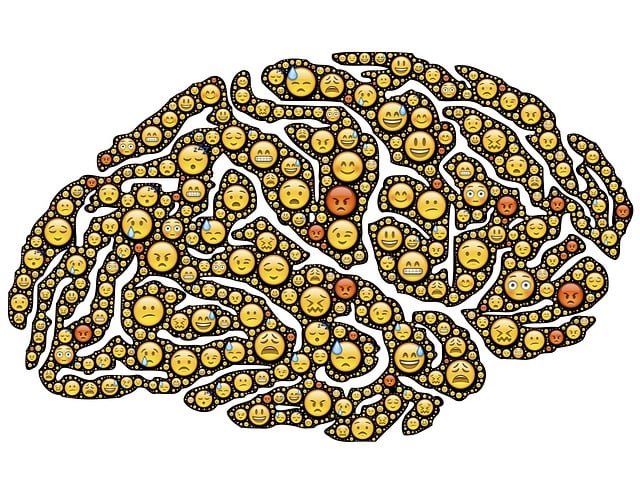Greenwood Village American Sign Language (ASL) Therapy offers a unique approach to crisis intervention, improving communication and reducing stigma for deaf or hard-of-hearing individuals during mental health crises. Their comprehensive training program combines theory and practice, focusing on trauma support, emotional intelligence, self-care, cultural sensitivity, and simulations. This innovative model enhances overall team effectiveness in managing diverse crises, fostering compassionate community responses, and promoting inclusive communities.
In today’s fast-paced world, effective crisis intervention teams (CITs) are crucial in managing high-stress situations. This article delves into the essential components of CIT training programs, with a focus on American Sign Language (ASL) therapy, given its growing importance in emergency scenarios. We explore Greenwood Village as a prominent hub for specialized training, offering unique insights into designing effective curricula. From understanding CIT roles to the benefits of ASL, this guide highlights best practices for preparing teams to respond swiftly and humanely to crises.
- Understanding Crisis Intervention Teams: A Essential Overview
- The Role of American Sign Language in Emergency Situations
- Greenwood Village: A Hub for Specialized Training Programs
- Designing Effective Crisis Intervention Team Training Curricula
Understanding Crisis Intervention Teams: A Essential Overview

Crisis Intervention Teams (CITs) are specialized groups designed to swiftly and effectively manage individuals in mental health crises. These teams typically include trained professionals from various disciplines, such as psychologists, social workers, and law enforcement officers, who collaborate to provide immediate support and de-escalation strategies. Greenwood Village American Sign Language Therapy is an example of how inclusive practices can enhance CITs’ capabilities, ensuring better communication with deaf or hard-of-hearing individuals.
Understanding the role of CITs is crucial in today’s context where mental health issues are increasingly recognized as a societal concern. The concept behind these teams is to prevent escalation and reduce harm by providing early intervention. With proper training, CIT members learn to assess situations, implement evidence-based practices, and de-escalate potential crises, thereby fostering better outcomes for individuals experiencing mental health challenges. This approach also aims to improve public awareness campaigns development and Mental Illness Stigma Reduction Efforts by promoting understanding and empathy within the community.
The Role of American Sign Language in Emergency Situations

In emergency situations, effective communication is crucial for a successful crisis intervention. For individuals who are deaf or hard of hearing, American Sign Language (ASL) serves as a vital tool, enabling clear and immediate transmission of critical information. Greenwood Village American Sign Language Therapy plays a significant role in equipping crisis intervention teams with the skills to communicate effectively with this community during distressing events.
Integrating ASL into emergency preparedness training programs offers numerous benefits. It ensures that all team members can connect with deaf individuals, understand their needs, and provide appropriate assistance. Moreover, learning ASL enhances overall communication proficiency, encouraging positive thinking and promoting stress reduction methods within the team dynamic. This inclusive approach not only improves crisis management but also fosters a more compassionate and responsive community, especially in situations requiring urgent attention.
Greenwood Village: A Hub for Specialized Training Programs

Greenwood Village has established itself as a prominent hub for specialized training programs, particularly in American Sign Language (ASL) therapy. This small community has recognized the critical need for mental health support and has designed innovative solutions to address various aspects of emotional regulation. The village’s commitment extends beyond mere awareness; it actively fosters an environment conducive to learning and growth through comprehensive Mental Illness Stigma Reduction Efforts.
By offering intensive training sessions, Greenwood Village ensures that individuals equipped with ASL therapy skills can better communicate and assist those grappling with mental health challenges. These programs not only focus on language acquisition but also delve into the nuanced aspects of emotional expression and understanding. The village’s approach to Mental Health Education Programs Design is holistic, aiming to build resilience and promote inclusive communities where Emotional Regulation is a shared priority.
Designing Effective Crisis Intervention Team Training Curricula

When designing effective crisis intervention team training curricula, it’s essential to integrate a multifaceted approach that addresses both theoretical knowledge and practical skills. A comprehensive program should include modules on trauma support services, emotional intelligence, and self-care routine development for better mental health. By combining these elements, training sessions can equip participants with the tools needed to effectively manage and de-escalate crisis situations.
For instance, the Greenwood Village American Sign Language Therapy program excels in this regard by offering hands-on exercises that enhance communication skills during high-stress scenarios. Incorporating cultural sensitivity training ensures that intervention teams are prepared to address the unique needs of diverse individuals. Regular simulations and role-playing activities further reinforce learning, allowing trainees to apply their knowledge in realistic settings.
Crisis intervention team training programs, such as those available in Greenwood Village, utilizing American Sign Language (ASL) therapy, are invaluable resources. These specialized programs equip communities with essential skills to navigate and de-escalate crises effectively. By integrating ASL into curricula, these initiatives ensure better communication during emergencies, especially with deaf or hard-of-hearing individuals. This comprehensive approach fosters a more inclusive and responsive crisis response ecosystem in Greenwood Village and beyond.














